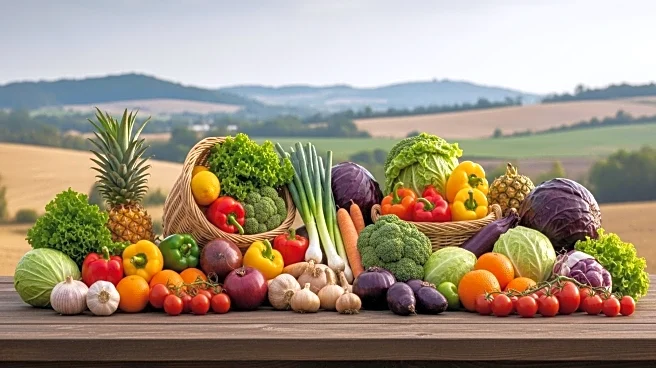What's Happening?
The EU's Common Agricultural Policy (CAP) is under scrutiny for disproportionately benefiting large agribusinesses while small, sustainable farmers struggle. Critics argue that the CAP supports an agricultural model that relies heavily on pesticides and fuels megafarms, exacerbating the climate crisis and driving small farmers out of business. The policy's impact on biodiversity and rural resilience is a major concern, with calls for reforms to promote agroecology and support sustainable farming practices.
Why It's Important?
The criticism of the CAP highlights the need for policy reforms to address environmental and social challenges in agriculture. Supporting small farmers and promoting sustainable practices are crucial for food security, biodiversity conservation, and climate change mitigation. The debate over the CAP could lead to significant changes in EU agricultural policies, impacting rural economies and environmental sustainability across Europe.
What's Next?
The EU may consider reforms to the CAP to better support sustainable farming practices and equitable distribution of funds. Policymakers, farmers, and environmental groups will likely engage in discussions to address these challenges and ensure the success of agroecological initiatives. The process of defining the new CAP for 2027 will be critical in shaping the future of European agriculture.
Beyond the Headlines
The focus on agroecology and sustainable farming practices could lead to long-term shifts in agricultural policies, promoting more environmentally friendly and socially equitable farming methods. This may also influence global agricultural practices, encouraging other regions to prioritize sustainability in their own policies.








